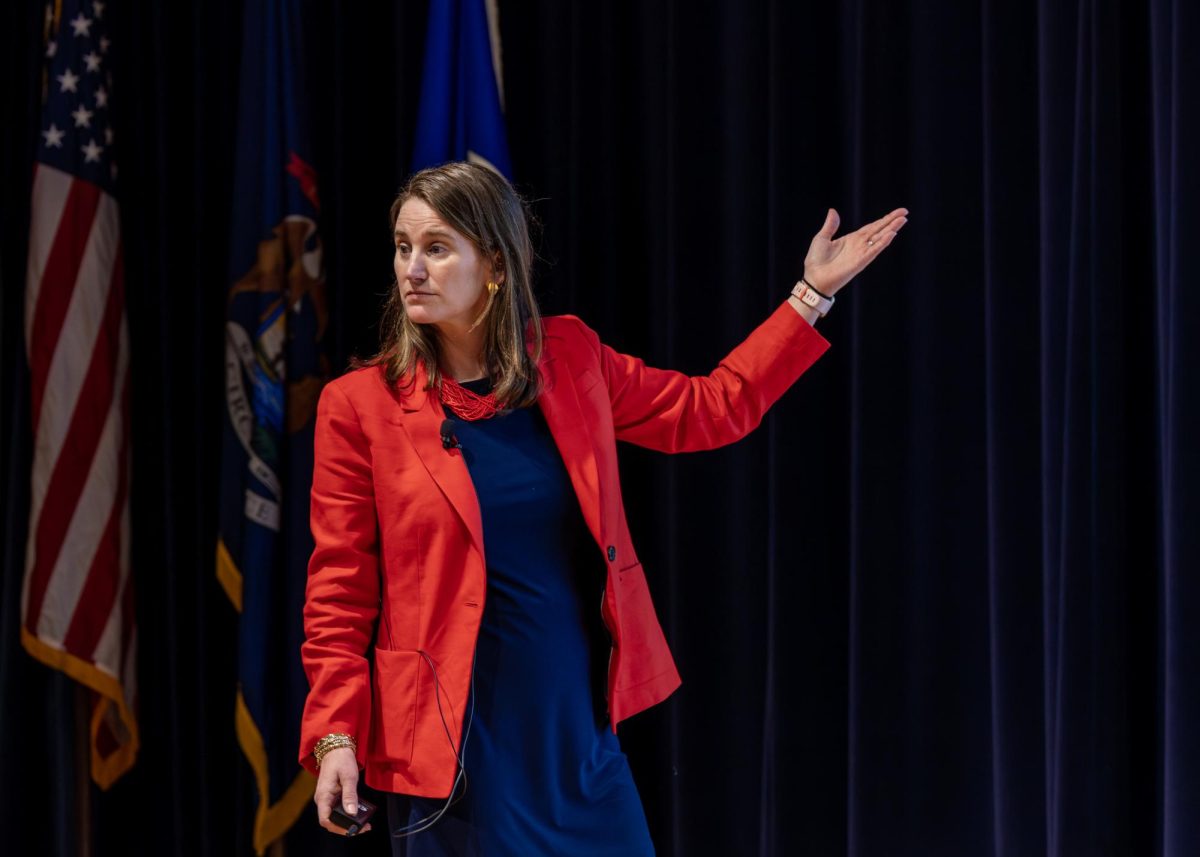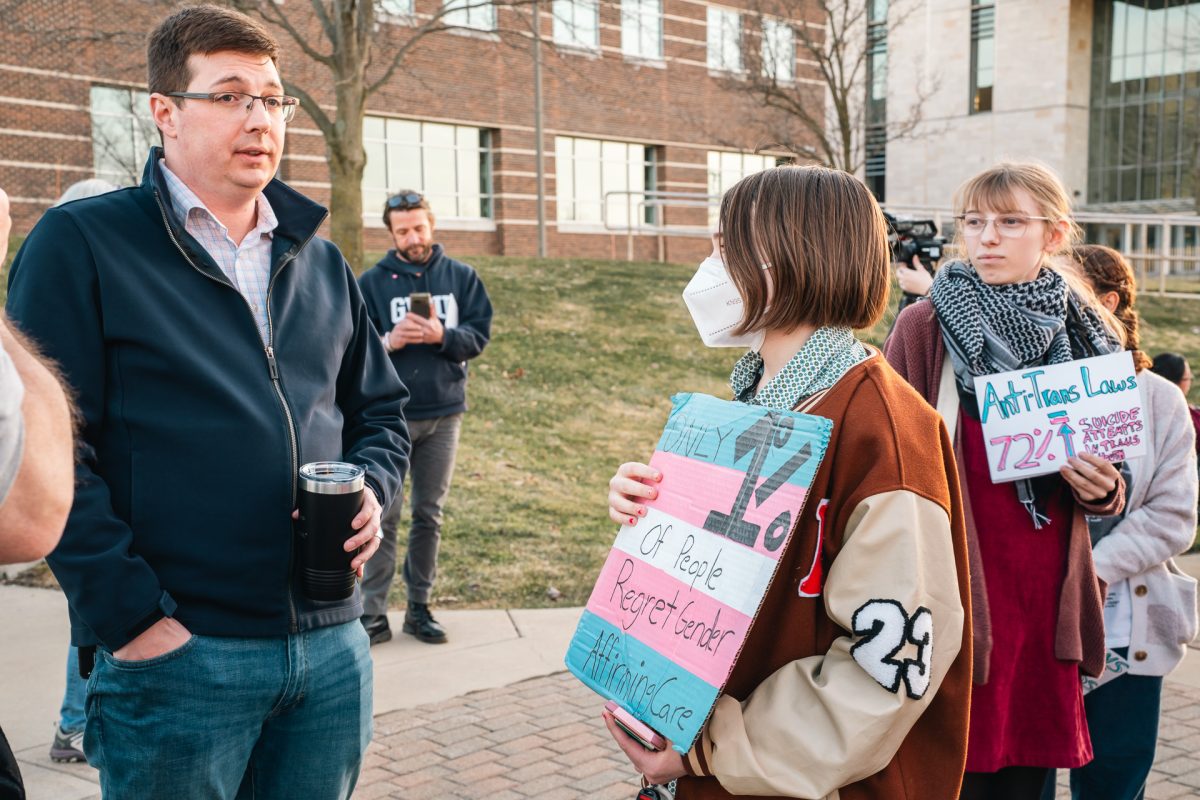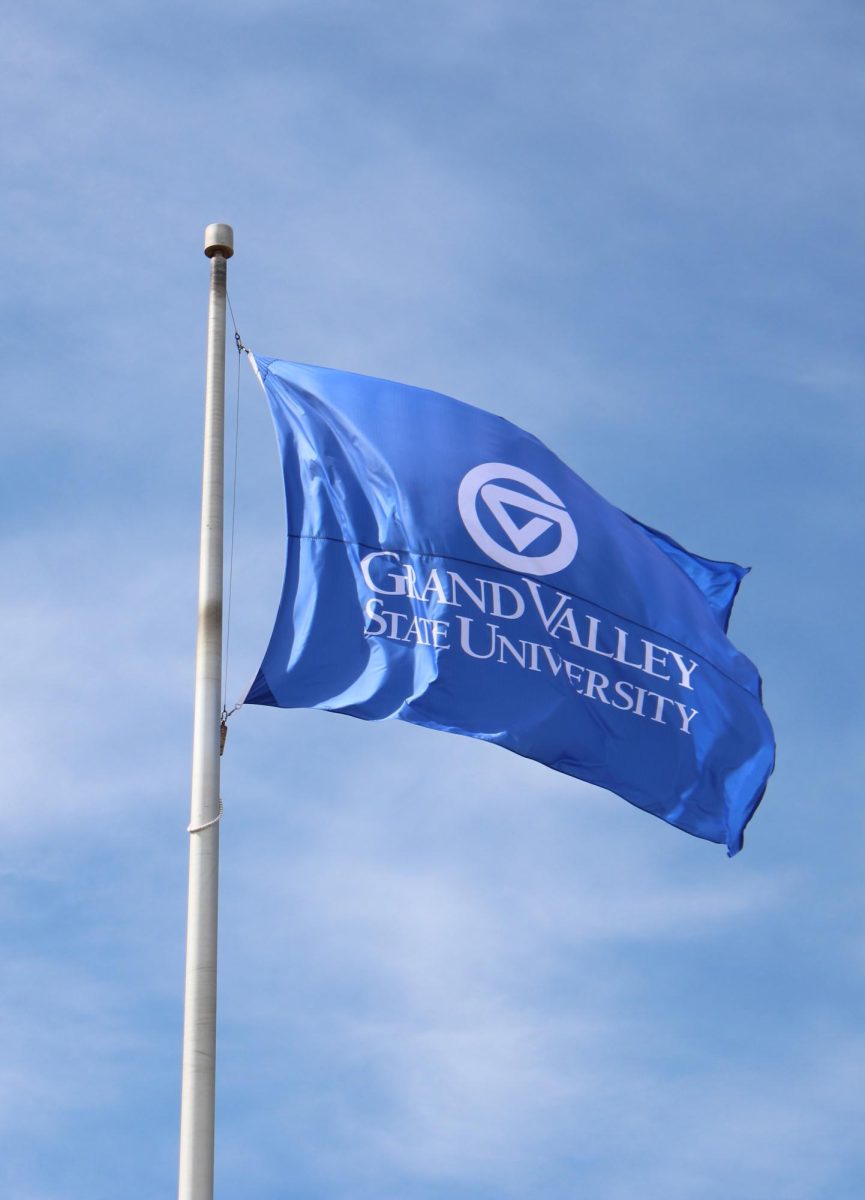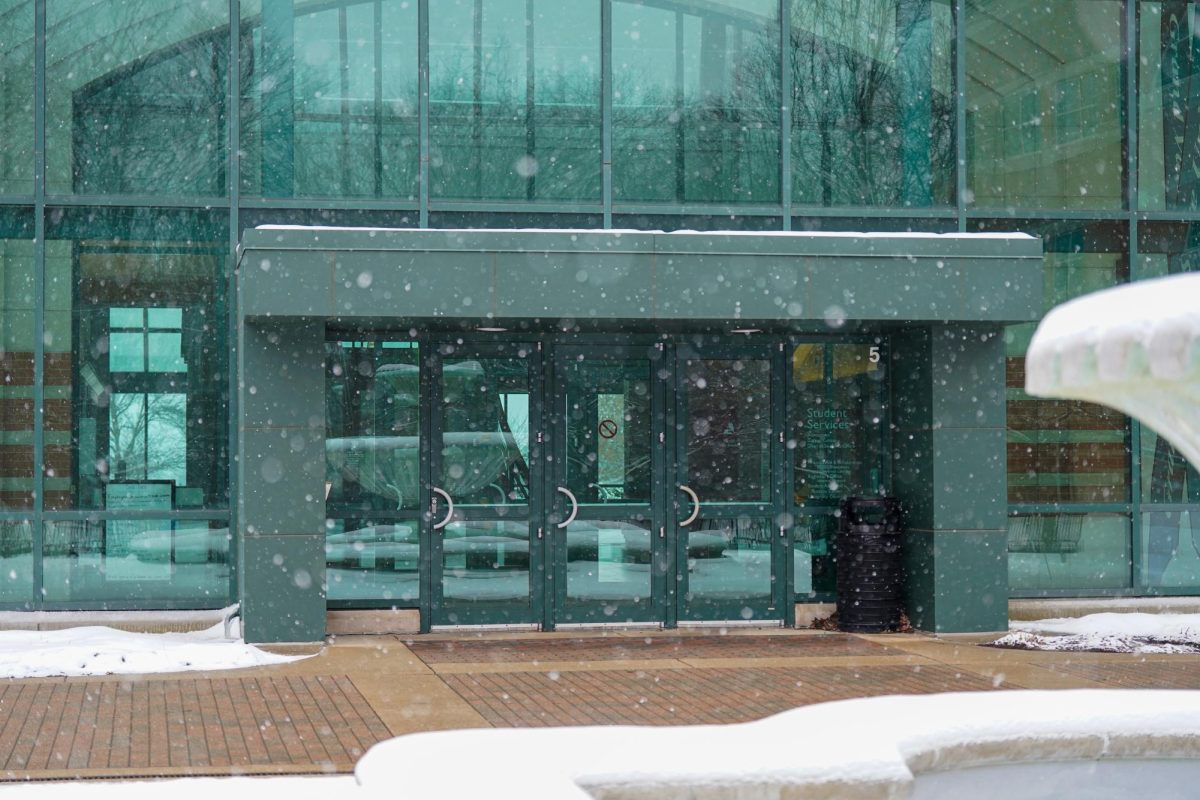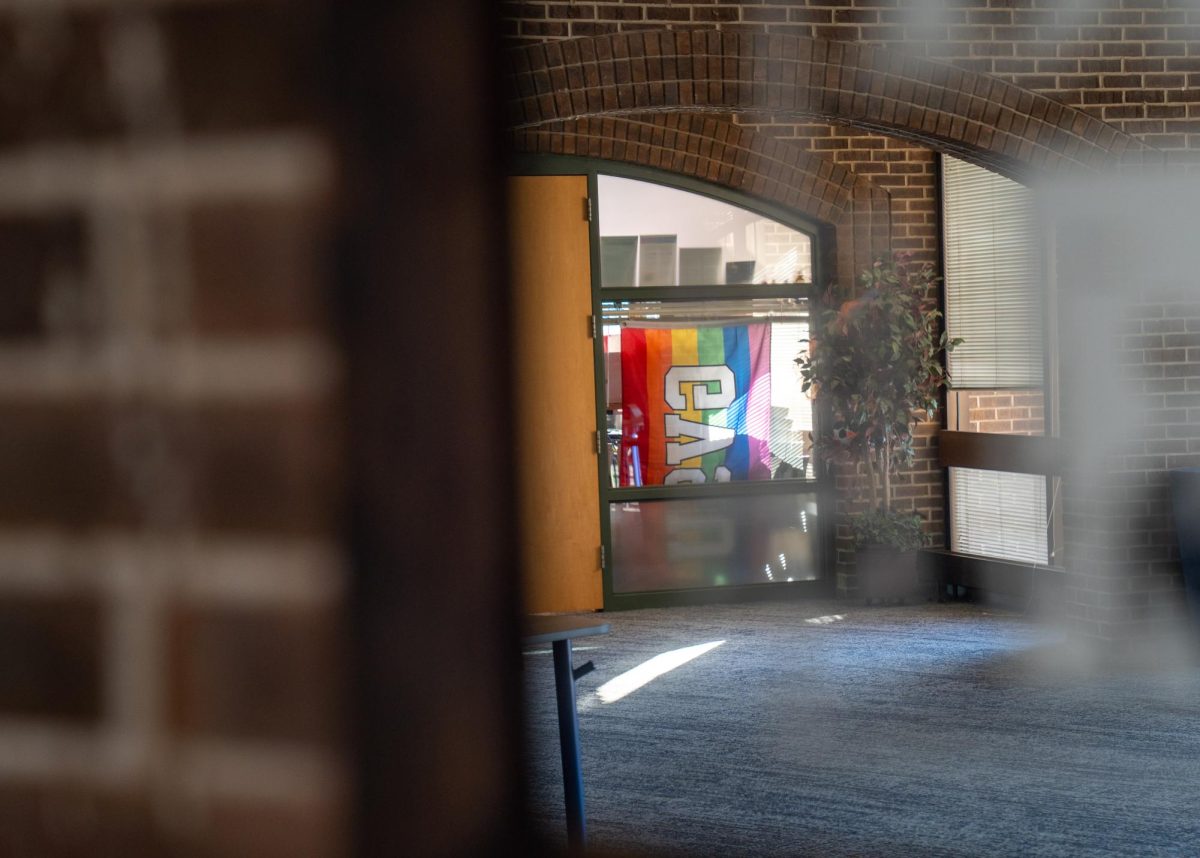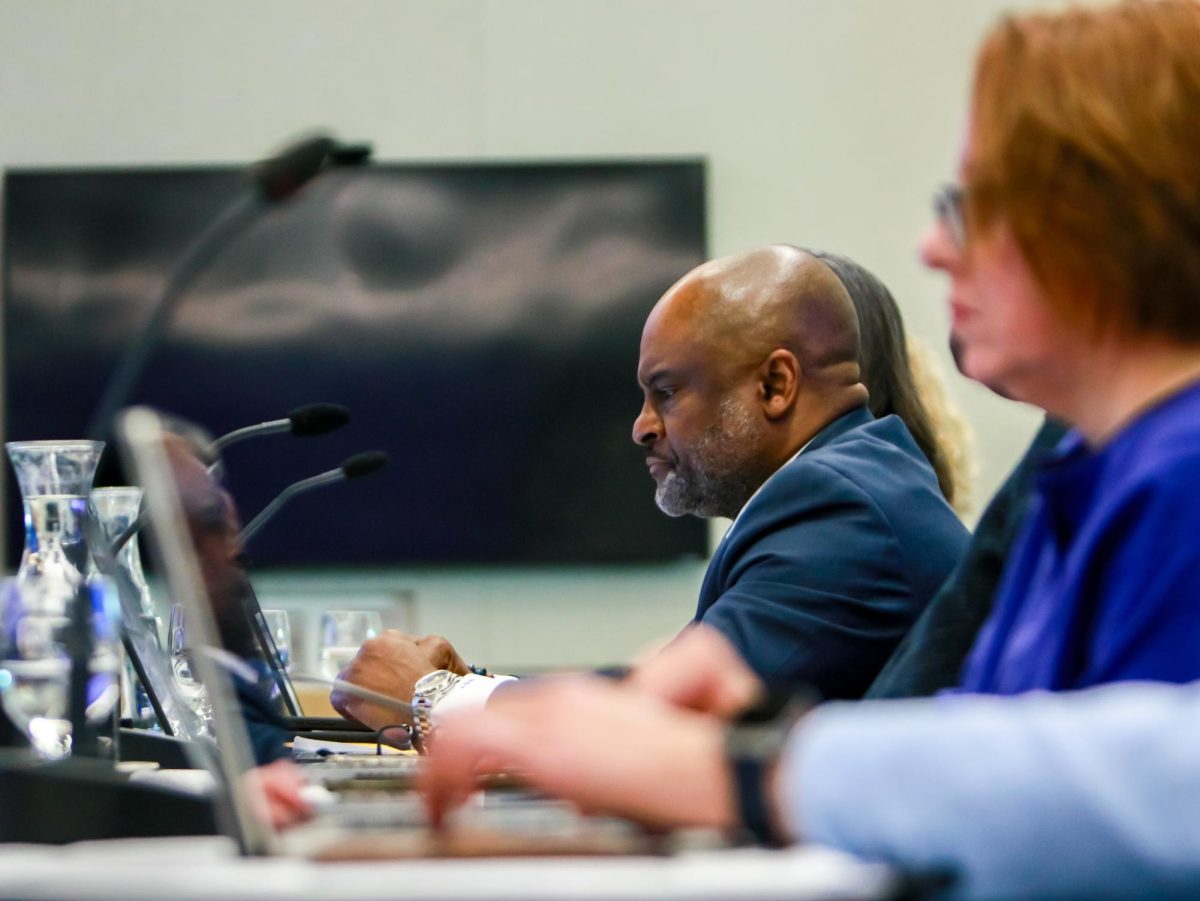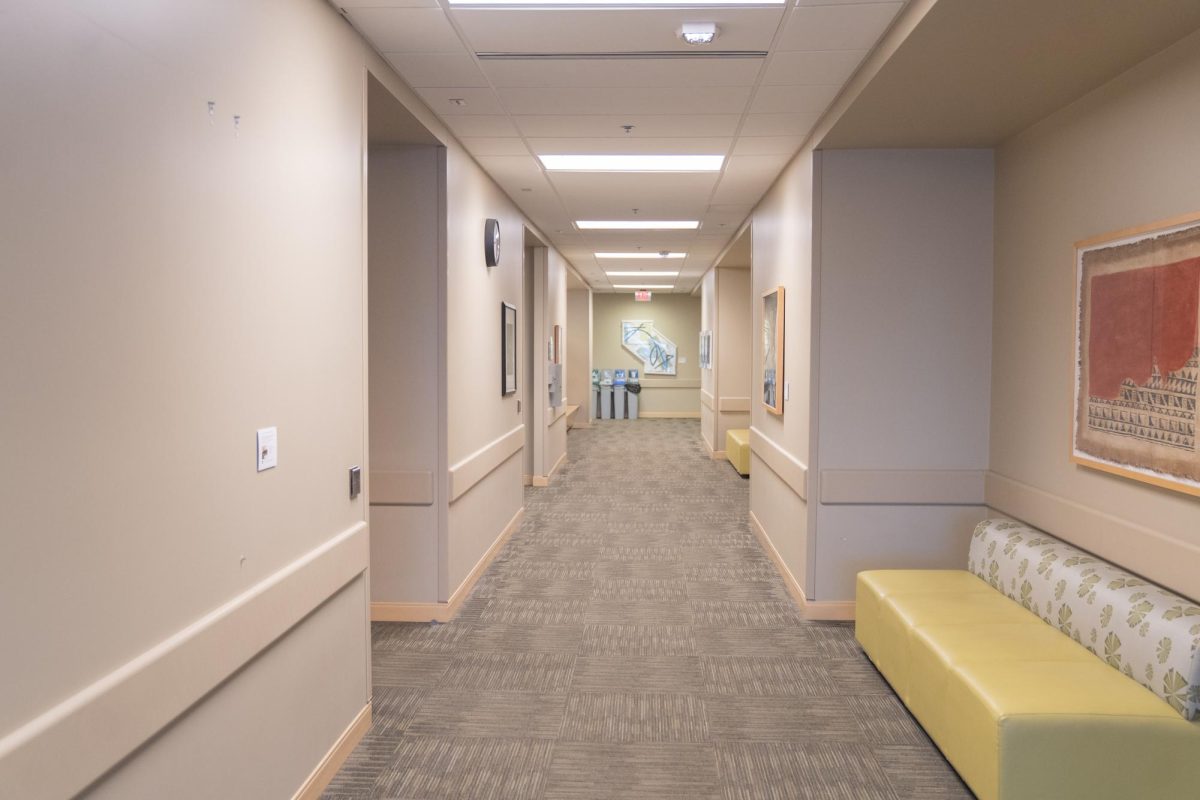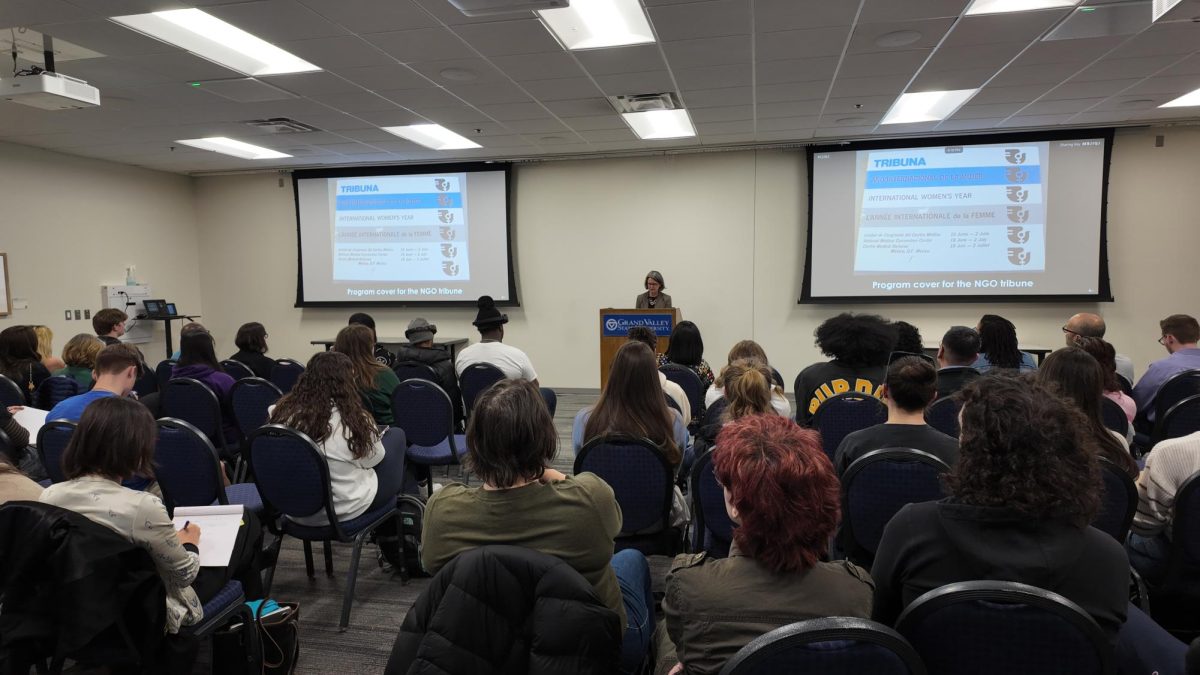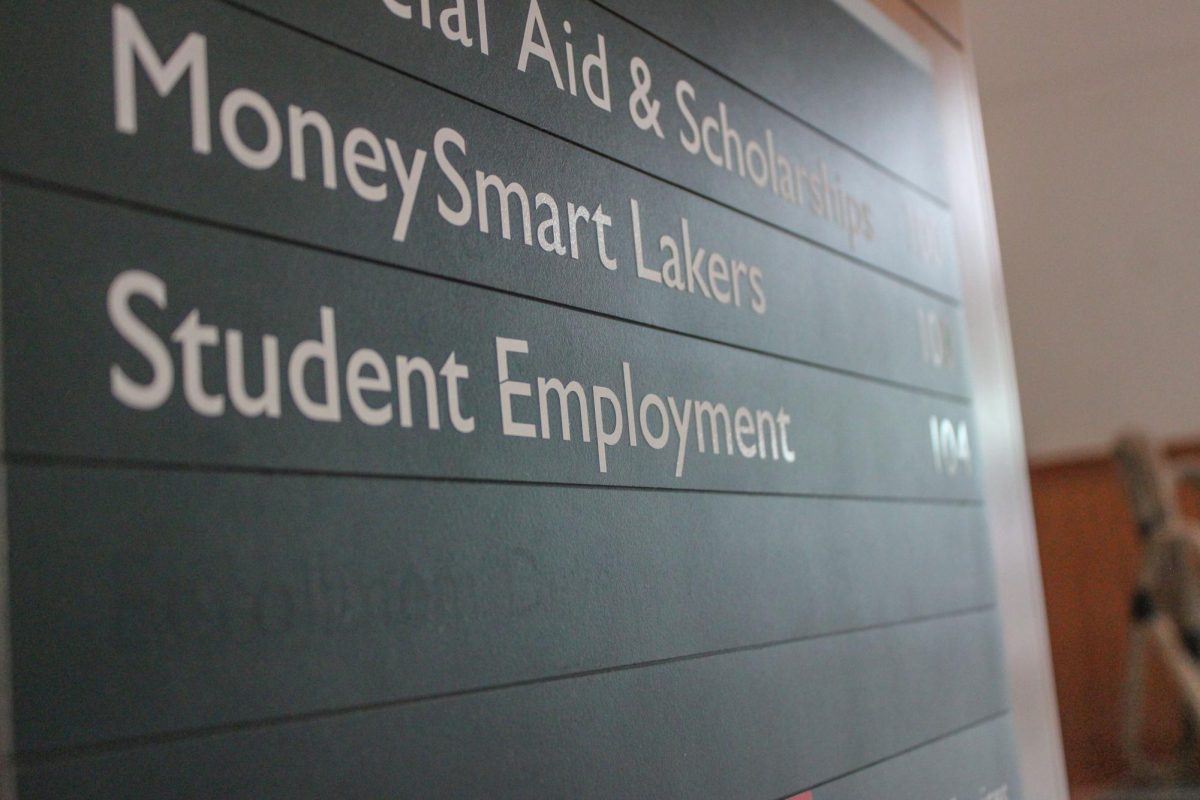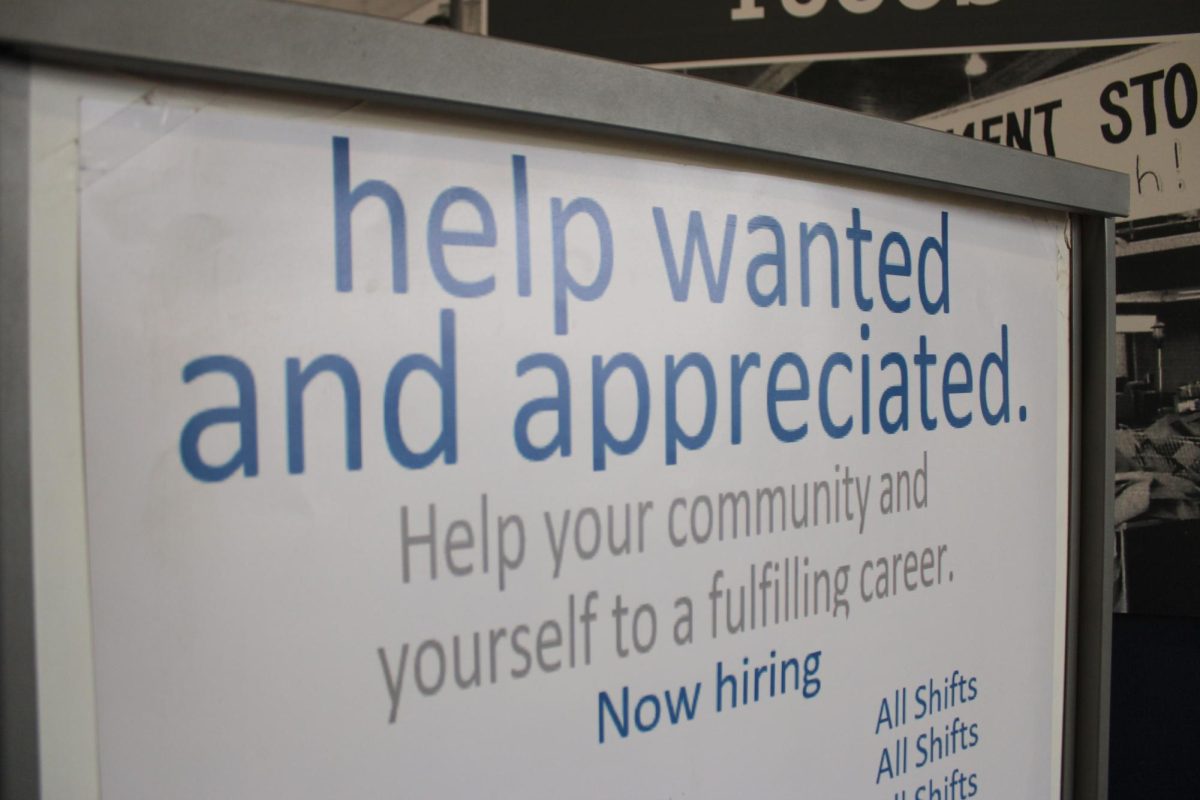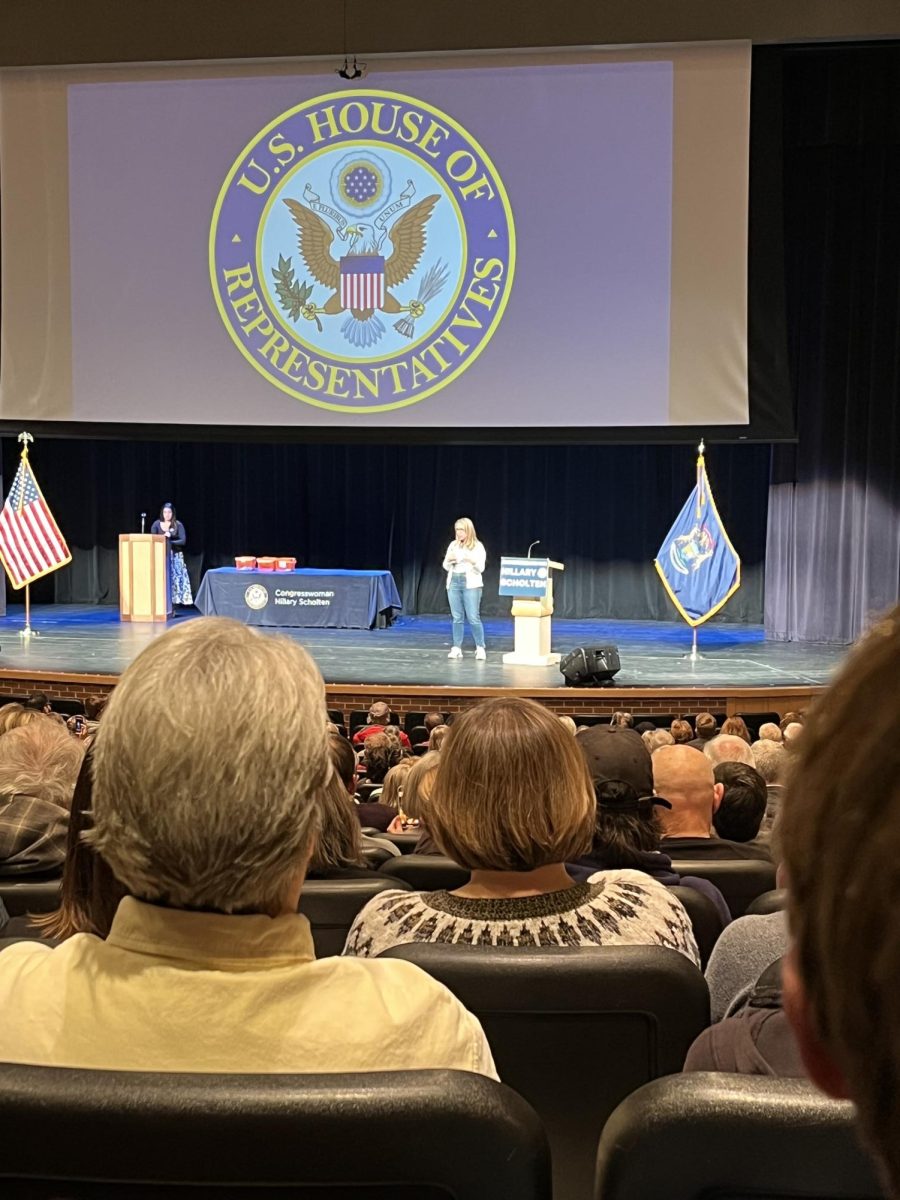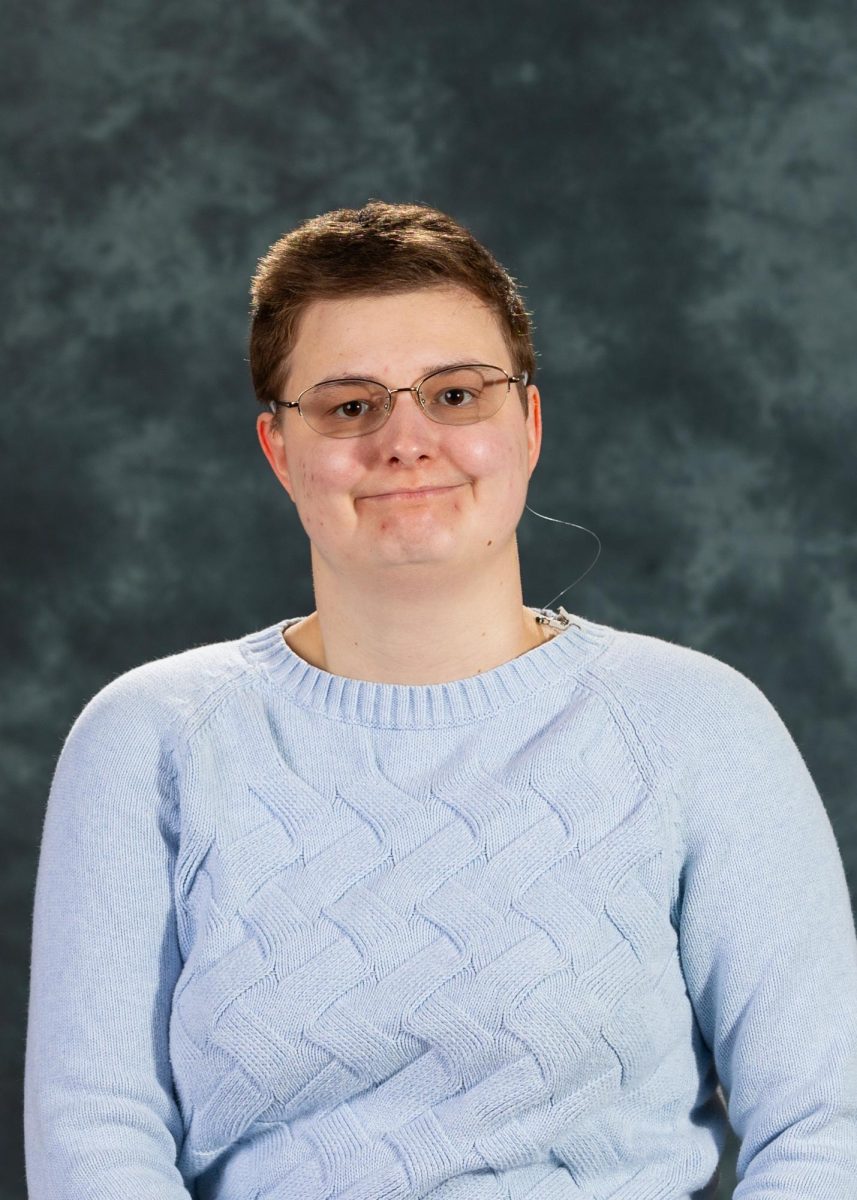Kristen Fox, the managing director of the Business-Higher Education Forum (BHEF) addressed a packed Loosemore Auditorium during Grand Valley State University’s annual President’s Forum. On Tuesday, March 25, GVSU President Philomena Mantella introduced Fox and later joined her on stage for a wide-ranging dialogue about the future of higher education, partnerships with business and shifting workforce dynamics.
BHEF is a national nonprofit that unites corporate and higher education leaders to address skills gaps and workforce readiness. Fox’s presentation, which was grounded in national data and years of BHEF research, examined how colleges and universities can better serve students and regional economies by embedding real-world skills, building partnerships and embracing flexible, lifelong learning pathways.
The managing director, a national leader in the education-to-employment strategy, set the mood for the event with a reality check for students and faculty alike.
“We are at a really important moment for higher education,” Fox said. “It’s a critical engine of economic growth, mobility and democratic strength, but we must evolve to meet the moment.”
Fox began by referencing a Georgetown University study showing that a bachelor’s degree typically yields an additional $1.2 million in lifetime earnings. However, she warned that public confidence in higher education is waning, as just 36% of Americans currently express trust in the educational system. Fox believes one major reason for this is employment outcomes.
“If a college degree doesn’t lead to a good job, people start to question the value (of education),” Fox said.
Data from the Strada Education Foundation showed that 52% of graduates are underemployed one year after graduating college, and many remain underemployed even 10 years later. Fox used the GVSU stage to spotlight the mission of BHEF.
“Our business partners tell us they need a different kind of graduate, someone with not just technical ability, but durable skills like adaptability, collaboration, communication and leadership,” Fox said. “These power skills are what drive mobility in a fast-changing economy.”
BHEF is working with institutions nationwide to create interdisciplinary models that embed industry-validated micro-credentials into degree programs. Institutions like the University of Florida and Drake University are leading this work in A.I. literacy and digital proficiency, respectively.
A significant focus of Fox’s talk was on experiential learning.
“Internships, co-ops and project-based learning directly correlate with higher wages, lower underemployment and greater career satisfaction,” Fox said. “But, we’re not offering enough of them.”
According to Fox, each year, 8.2 million students seek internships, but only 2.5 million land high-quality opportunities. Another 4.6 million miss out completely– especially students of color and those from lower-income backgrounds.
“We need more flexible, diverse models,” Fox said, citing examples like Arizona State University’s Work+ program and Northeastern University’s Experiential Network. “It’s not just about offering internships, it’s about structuring them equitably and intentionally.”
After the presentation, Mantella joined Fox for a Q&A session centered on how GVSU can lead regional efforts to offer students more than just a degree by providing them with the skills, experiences and connections needed to succeed after graduation.
Mantella asked Fox about less transactional, more holistic business partnerships.
“It starts with shared goals and clarity about the problem you’re solving together,” responded Fox. “Whether it’s a talent shortage or regional growth, there must be alignment and trust between education and business leaders.”
Mantella, highlighted the University’s ongoing efforts to reach 100% experiential learning participation, questioning Fox for any advice she might have for GVSU to be on the cutting edge.
“You already have the ingredients, (which are) agility, regional connection and a diverse industry base,” Fox said. “I’d challenge GVSU to design backward from the jobs of the future. Embed skills across majors, lean into interdisciplinary work and maintain real-time dialogue with your business partners.”
Fox also explored how higher education must adapt to a new generation of learners– those who are delaying college, working full time and seeking alternative credentials.
“Education is no longer linear,” Fox said. “We need to provide flexible, stackable credentials so students can work and return with momentum.”
For attendees, which ranged from faculty to local business leaders, the President Forum’s message was clear: education and industry must build new bridges if they want to prepare students for a fast-evolving world.





